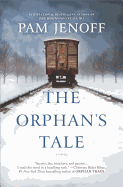
Immediately after birth, 16-year-old Noa's newborn is taken as part of Germany's Lebensborn program, which was "designed to deliver babies in good health to the Reich." More than a year later, disowned from her family and mourning her child, Noa discovers a railcar carrying infants headed for the concentration camps. Instinctively, she grabs a baby boy, saving him from death.
During their escape, Noa and the child encounter the traveling Circus Neuhoff, and their story becomes entwined with that of Astrid, a Jewish woman who married a German soldier. With Hitler gaining power, her husband demands a divorce out of loyalty to the Nazi Party. Returning to her family's circus, a friendly competitor of the Circus Neuhoff, Astrid finds everyone gone, and she's taken in by the benevolent Herr Neuhoff. When Noa arrives with infant in tow, she and Astrid train and perform together as trapeze artists. Initially adversaries, the two women struggle to develop the mutual trust required by their risky circus act and personal circumstances.
Inspired by a real-life circus that harbored Jews during the Holocaust, as well as Jewish circus dynasties, The Orphan's Tale is not one person's story of abandonment but that of a generation lost to history. With a detailed command of circus life, unexpected twists and parallel narratives, Pam Jenoff (The Last Summer at Chelsea Beach) uses the circus's mystique to symbolize each character's secrets. Noa and Astrid's death-defying trapeze stunts--along with the circus itself--serve as backdrop to the world's terror, the risks they take to protect each other and the tenuous grip on those we love. --Melissa Firman, writer, editor and blogger at melissafirman.com

